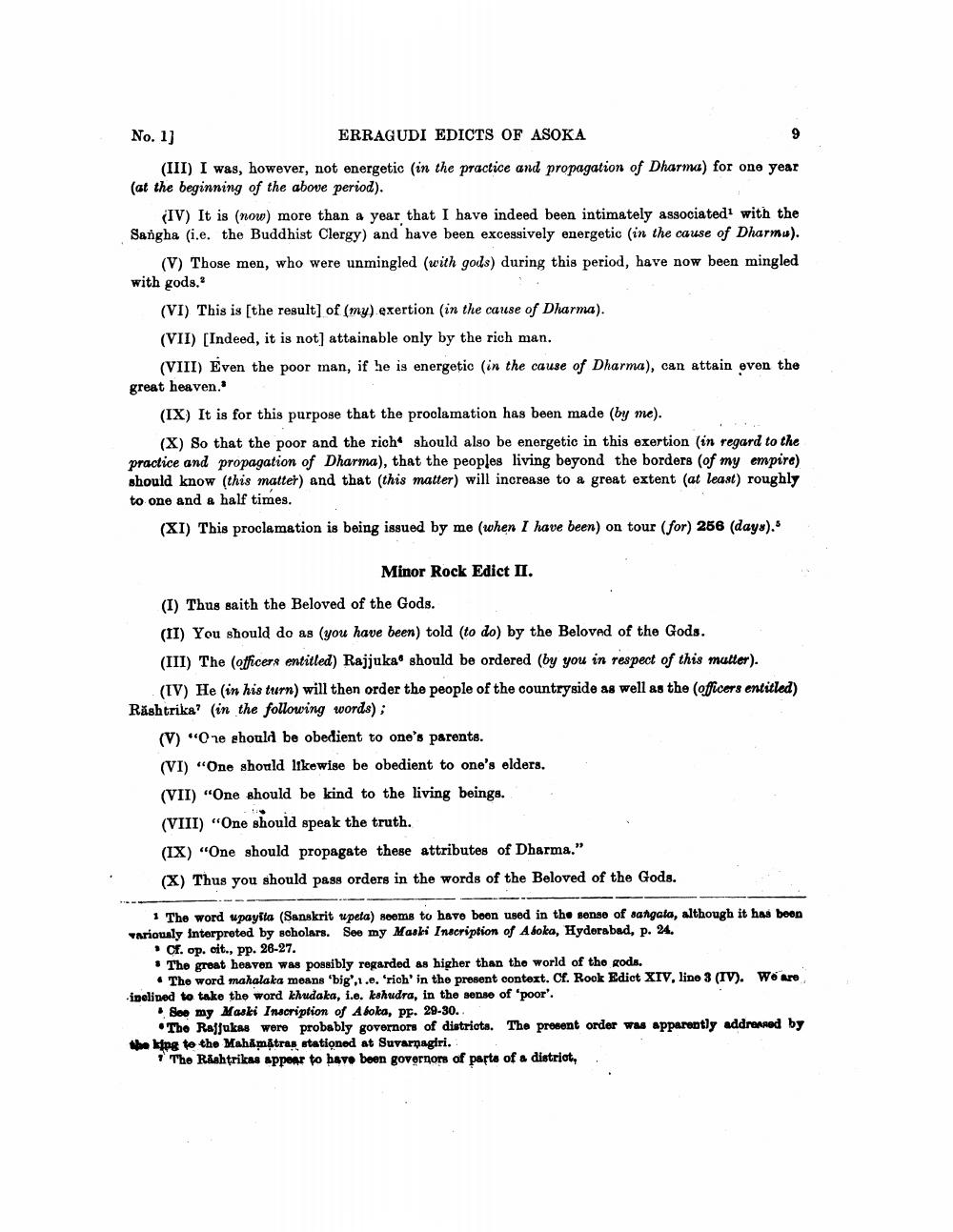________________
No. 1]
ERRAGUDI EDICTS OF ASOKA (III) I was, however, not energetic (in the practice and propagation of Dharma) for one year (at the beginning of the above period).
(IV) It is (now) more than a year that I have indeed been intimately associated with the Sangha (i.e. the Buddhist Clergy) and have been excessively energetic (in the cause of Dharmu).
(V) Those men, who were unmingled (with gods) during this period, have now been mingled with gods.
(VI) This is [the result] of (my) exertion (in the cause of Dharma). (VII) [Indeed, it is not] attainable only by the rich man.
(VIII) Even the poor man, if he is energetic (in the cause of Dharma), can attain even the great heaven."
(IX) It is for this purpose that the proclamation has been made by me).
(X) So that the poor and the rich should also be energetic in this exertion (in regard to the practice and propagation of Dharma), that the peoples living beyond the borders (of my empire) should know (this matter) and that this matter) will increase to a great extent (at least) roughly to one and a half times.
(XI) This proclamation is being issued by me (when I have been) on tour (for) 256 (days).
Minor Rock Edict II. (I) Thus saith the Beloved of the Gods. (II) You should do as (you have been) told (to do) by the Beloved of the Gods. (III) The officers entitled) Rajjuka should be ordered (by you in respect of this mutter).
(IV) He (in his turn) will then order the people of the countryside as well as the officers entitled) Răshtrika? (in the following words);
(V) "One should be obedient to one's parents. (VI) “One should likewise be obedient to one's elders. (VII) "One should be kind to the living beings. (VIII) "One should speak the truth. (IX) "One should propagate these attributes of Dharma." (X) Thus you should pass orders in the words of the Beloved of the Gods.
1 The word wpayita (Sanskrit upeta) seems to have boon used in the sense of aangala, although it has been varioualy Interpreted by scholars. See my Maski Inscription of Adoka, Hyderabad, p. 24.
• dr. op. cit., pp. 26-27. • The great heavon was possibly regarded as higher than the world of the gods.
• The word mahalaka means 'big',1.e. 'rich' in the present context. Cf. Rook Edict XIV. lino 3 (IV). Wo Are ipelined to take the word khudaka, i.e. kshudra, in the sense of 'poor'.
Soe my Maski Inscription of Aboka, PF. 29-30.
The Raffukas were probably governors of districts. The present order was apparently addressed by the king to the Mahamtras stationed at Suvarnagiri.
* The Råshtrikas appoar to have been governors of parts of a district,




